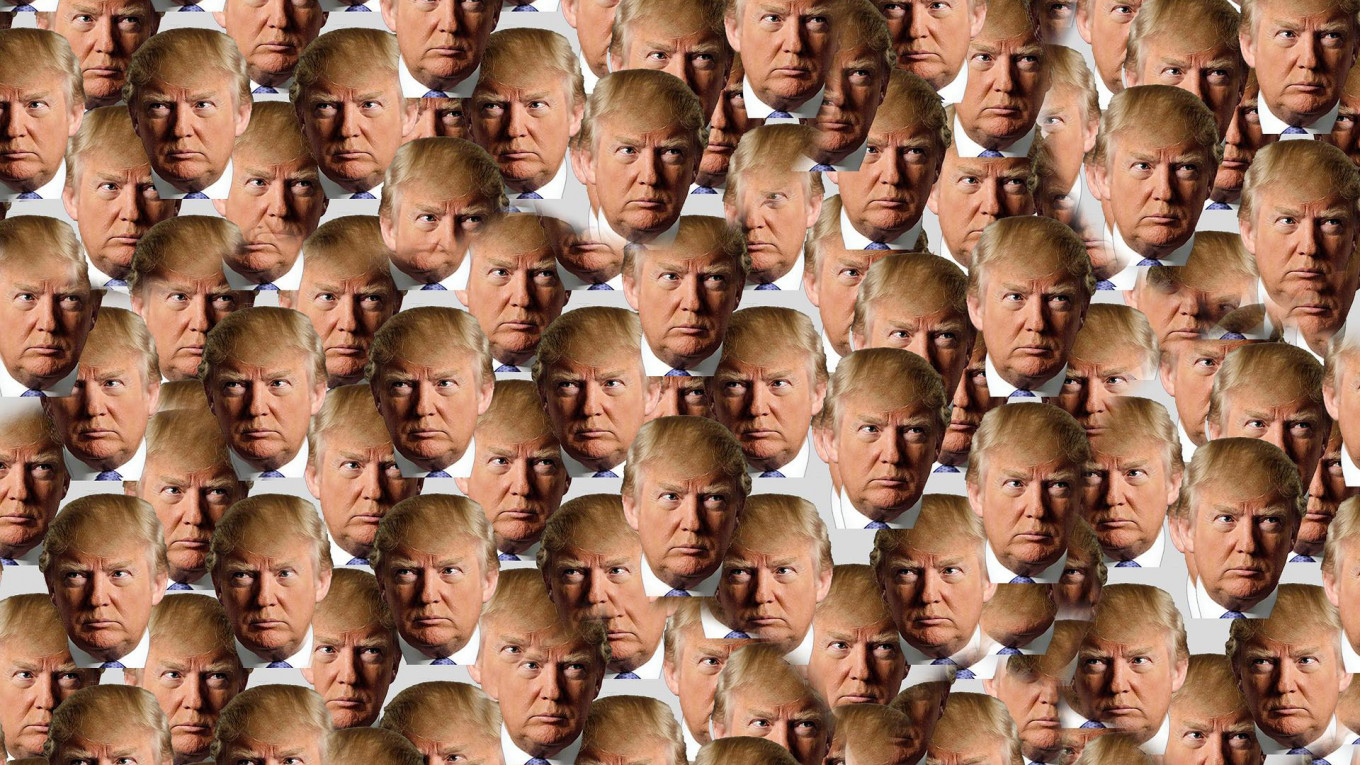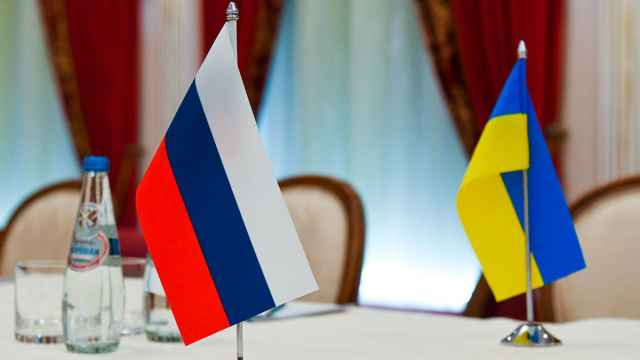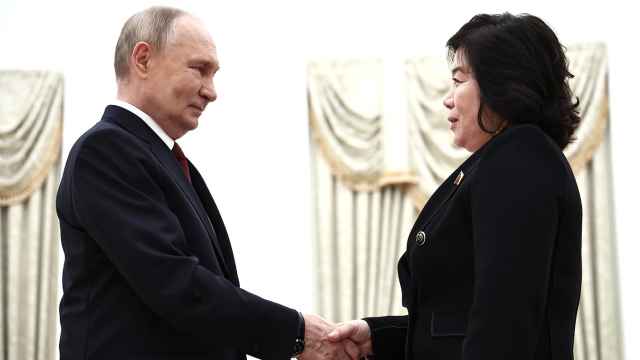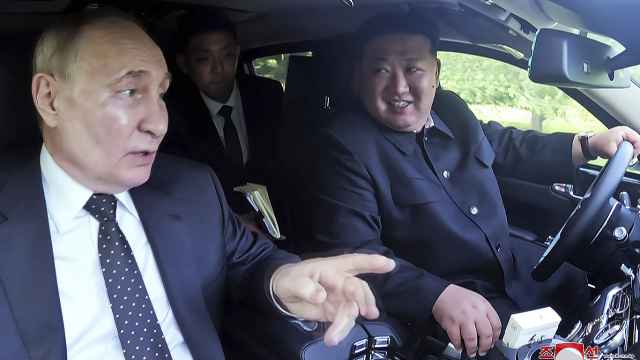In the past 24 hours, on both sides of the Atlantic, the Internet has exploded in incredulity, responding to an unverified dossier published by BuzzFeed News, describing U.S. President-elect Donald Trump’s alleged relationship with the Kremlin.
The 35-page report features several salacious and uncorroborated claims about Trump’s ties to Russia, including allegations that the Kremlin has blackmailed Trump with information about his sexual escapades in a Moscow hotel.
Sexual escapades, you say? According to the dossier, Trump participated in a handful of “perverted sexual acts” that were “arranged and monitored” by the Russian secret services. Specifically, he supposedly hired prostitutes to urinate on the bed in a hotel room in Moscow that once hosted President Obama and the First Lady. The report says this became known as the “golden showers” incident.
After the dossier hit the Internet on Tuesday, the hashtag #GoldenShowers even trended briefly on Twitter.
For Trump’s critics, the allegations confirm all the worst conspiracy theories that have circulated for the past year, but unfortunately for these people there’s no real proof that anything in the report ever happened.
With each section of the dossier, there are more questions than answers, including the notorious episode described at Moscow’s Ritz Carlton. Allegedly, the hotel incident took place in 2013, when Donald Trump was just a rich American on a business trip in Russia. But experts question why the Russian secret police would have targeted him in so elaborate an operation at this time, especially given the high-level clearance necessary for such work.
Expressing similar doubts, Russian officials have almost welcomed the dossier on Trump as another gift from an increasingly Russophobic West. Echoing this skepticism, Nikolai Kovalyov, who headed Russia’s Federal Security Service in the late 1990s (until Vladimir Putin took his job), denies that Moscow has any compromising secrets about Donald Trump. Now a deputy in the State Duma, Kovalyov says it’s unlikely that Russian police would have been so interested in a man “who came to Moscow to conduct a beauty contest.”
In fact, Kovalyov goes a step further, maintaining that Russian police never perform the kind of operation described in the report. “This practice — and I can refer to my experience — does not exist in Russia.”
This latter claim is hard to believe, however, given the history of Russia’s political scene, which is infamous for “honey traps” staged to ensnare state officials and politicians, in order to accrue compromising information and end careers. The most notorious case took down Yury Skuratov, Russia’s prosecutor general in the late 1990s. He was filmed secretly and then exposed on national television. Former Prime Minister Mikhail Kasyanov, now a prominent anti-Kremlin activist, endured a similar ordeal last spring, crippling an already feeble coalition of Russia’s democratic opposition in fall parliamentary elections.
With journalists failing to corroborate the Trump dossier, Kremlin officials have been free to deny everything in the report. Dmitry Peskov, Vladimir Putin’s spokesman, called the document a “complete fabrication and utter nonsense.” Rather implausibly, the report describes Peskov as “the main protagonist in Kremlin campaign to aid Trump and damage Clinton.”
“The Kremlin has no kompromat on the president-elect of the United States, Donald Trump; the information on this subject is absolute fiction.” Peskov said, adding that “the Kremlin does not engage in the collection of compromising materials.”
The term “kompromat” is a Russian word that describes the practice of gathering compromising information that can be used for blackmail. Soviet secret police mastered the tactic, which has remained popular among states throughout the former U.S.S.R. There is even a Russian website, Compromat.ru, that tirelessly catalogues known instances of political blackmail. In 2016 alone, the website reported dozens of cases.
Peskov also referred to Donald Trump’s tweets, repeating the claim that the president-elect is the target of a hysterical “witch-hunt.” “By the way,” Peskov told reporters, “that’s how President-elect Trump has described this forgery.”
When it published the dossier, BuzzFeed warned readers that the document is “unverified and potentially unverifiable.” But some activists in the Russian opposition, among others, say they’ve managed to verify at least parts of the report.
Leonid Volkov, a close associate of opposition leader Alexei Navalny, says he identified one Russian citizen named in the dossier. Writing on Facebook, Volkov says he confirmed the existence of a man named Aleksey Gubaryov, an IT specialist mentioned in the document. According to Volkov, Gubaryov’s name was simply transliterated incorrectly in the report.
Pavel Durov, the founder of the Russian social media platforms Vkontakte and Telegram, has also weighed in on the new report, in light of its claims that Russian federal agents successfully hacked Telegram, rendering the messaging app unsafe for confidential communication. Unsurprisingly, Durov doubts the claims, arguing that the vulnerabilities lie with Russian phone companies, not Telegram.
Durov says the dossier probably refers to an incident last year, when the Telegram accounts of two Russian activists were hacked, after Russian police apparently cracked local mobile phone operators.
“I’m with Trump and Wikileaks on this. If it really happened, the phrase ‘His/her understanding was that the FSB… had cracked this communication software” probably refers to the interception of text messages to Kozlovsky and Alburov in April 2016,” Durov told the website Secretmag.
Even Russia experts who often criticize the Kremlin have reacted to the dossier with skepticism.
Mark Galeotti, an expert in the Russian security services, wrote that it is difficult “to accept not only a long-term plan to elevate Trump to the presidency — no one in Moscow seems to have thought this possible — but also one done in coordination with his campaign.”
For Russian political expert Vladimir Frolov, the key takeaway of this report is that it carries allegations of direct coordination between the Russian special forces and someone on the Trump team to leak information to Wikileaks. Frolov told The Moscow Times that this could transform the matter into a spy case with credible grounds for impeachment hearings.
“This is what the F.B.I. is analyzing now,” Frolov said. The rest of the report, he argues, carries no credibility.
In what has become a growing trend over the past week, the dossier has provoked reactions from commentators typically critical of Moscow that largely converge with responses from pro-Kremlin pundits.
Meanwhile, on national television, the report has been met with the Russian media’s usual mockery. One guest appeared on the state-owned channel Rossiya 1 told viewers that the dossier’s allegations look like “poorly constructed kompromat.”
A Message from The Moscow Times:
Dear readers,
We are facing unprecedented challenges. Russia's Prosecutor General's Office has designated The Moscow Times as an "undesirable" organization, criminalizing our work and putting our staff at risk of prosecution. This follows our earlier unjust labeling as a "foreign agent."
These actions are direct attempts to silence independent journalism in Russia. The authorities claim our work "discredits the decisions of the Russian leadership." We see things differently: we strive to provide accurate, unbiased reporting on Russia.
We, the journalists of The Moscow Times, refuse to be silenced. But to continue our work, we need your help.
Your support, no matter how small, makes a world of difference. If you can, please support us monthly starting from just $2. It's quick to set up, and every contribution makes a significant impact.
By supporting The Moscow Times, you're defending open, independent journalism in the face of repression. Thank you for standing with us.
Remind me later.






